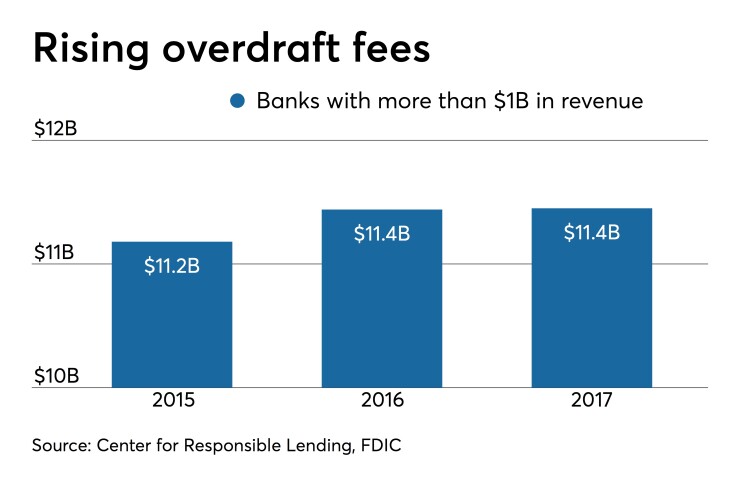Think a startup whose stated purpose is to cut into banks' fee income would ever be welcome in banking circles?
One such firm, Cushion, insists that the answer is yes.
Cushion, founded in 2016, uses an artificial intelligence bot to help consumers dispute overdraft and other banking fees and negotiate refunds.
But Cushion says its AI technology presents an opportunity for banks, too, if they would be willing to sacrifice some short-term revenue in the interest of improving customer satisfaction and cementing long-term relationships.
“The future of the system is going to be working with banks,” said Paul Kesserwani, Cushion's CEO. The San Francisco company wants "to partner with the banks and show them that" it "can add value, whether it's reducing customer support costs or increasing net promoter scores or retention.”
Instead of customers calling to argue down bank fees, Cushion employs an AI that calculates when and how a customer should appeal a fee — when the customer has just gotten a large deposit or has paid off his credit card bill, for example. With the user’s credentials in hand, the bot argues on behalf of the customer through the bank’s secure messaging system.
Direct-to-consumer companies like Cushion will likely become “more of an Alexa skill than a stand-alone business,” said Lex Sokolin, fintech venture adviser and investor.
“The promise of a truly AI-enabled personal financial assistant would include the ability not just to buy financial product, but to create immediate savings,” Sokolin said. “People want to see a change in their wallets, not just information telling them that they are broke.”

Consumers have already demonstrated that they’re comfortable with companies acting on their behalf for their financial benefit as companies like Digit, Acorns, Betterment and Wealthfront continue to gain more customers.
That will frame the trade-off of some revenue for greater customer retention and insight, said Peter Wannemacher, an analyst at Forrester Research.
The popularity of such apps says much about shifting customer expectations, he said. In 2000, the music file-sharing company Napster "was sued and failed,” Wannemacher said. “That doesn’t mean we still go to CD stores.”
Wannemacher predicted that in the future, banks’ business models will not all be structured in the same way and will look much more like how fintechs are run.
“Some banks will look like a subscription model,” he said. “Others will earn based on what a customer earns.”
Cushion claims to have helped “tens of thousands” of customers. The refunds that Cushion most often secures reflect what Americans most often pay: overdraft fees and credit card interest.
“The banks hate giving credit card interest back, but if you build a compelling case, they do,” Kesserwani said. “I think they know we're making their customers happy and those people are less likely to switch.”
At this stage the company helps lower bank fees for customers of only four companies — American Express, Wells Fargo, PNC and JPMorgan Chase. (“We're trying to perfect our model and actually scale AI as opposed to hiring an army of human agents," Kesserwani said.)
Its only public negative
The long-term benefit of customer satisfaction can’t be understated, says SparkBeyond, an AI research engine based in New York. It helps banks price credit cards and financial products as well as determine what fee forgiveness should look like for a customer based on his “lifetime value,” said Francisco Martin, general manager of the Americas for SparkBeyond.
SparkBeyond factors in avoiding churn as well as increasing customer satisfaction into its algorithm, and the company offers its software as part of an integration into the customer relationship management system or as weekly reports sent to the managers at call centers for them to use to upgrade call center training.
The company aims to broaden a banker’s view into what a customer means to a bank now and what that customer will mean to the bank in the future.
“You may have a young person who is starting a potential high-growth career and might not be generating a lot of revenue today for the bank but maybe in 10 years they will be,” Martin said. “It may make sense for us to be flexible with fees early on in the customer journey so we can build that trust and relationship with them.”





